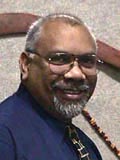

 Ribnga's Corner
Ribnga's Corner
![]()
The
New South Wales Parents and CitizenÆs Federation has sparked a debate
(August, 1999) in the printed media after it decided to use the word ôinvasionö
in its school syllabus as opposed to ôsettlementö to describe Captain
CookÆs landing on the shores of this country in 1770.á Spokesman for the Federation, Mr Rod Molesworth
said that children should not be taught lies û what happened was an invasion
and thatÆs what it should be called.á
The state teachersÆ union supports the view of the Federation.á In contrast, a conservative politician in NSW
said labelling Cook as an invader was offensive.á Captain Cook hailed from the North Yorkshire town of Whitby and
so another party coming to the defence of Cook is the Whitby Cook Museum.á (See The
Advertiser p42, Saturday 21 August 1999 and The Age p23, Saturday 21 August 1999.)
This
initiative by the NSW Parents and CitizenÆs Federation is to be given
the highest praise; and I am heartened by the Union support for the bold
move by the Federation.áá I cannot
for one moment accept that Cook did not see that he was the forerunner
of a massive invasion force to this continent, England being the power
it was at that period in history.á He
may not have seen the way the forces of invasion were to unfold and the
raw brutality that was to go with it.á
The arrival of the First Fleet was no small event û the lives of
Aboriginal people were to be changed forever.á
CookÆs part was inextricably bound with these events and they could
not have taken place without CookÆs reconnoitring exercise and subsequent
reports back to authorities in England.
I
want to make some observations concerning the historical treatment of
Aboriginal people.á These observations
have no small bearing on the discussion but they rarely get mentioned:
╖
The first point is the act of colonial authorities declaring
all Aboriginal people citizens of the British crown.á This had the effect of making all acts of resistance
to a foreign incursion, mere acts of criminality and not a defence of
sovereign rights against invading forces.
╖
The truth is that Aboriginal people were never even counted
as part of the Australian population until 1971, the first national census
after the 1967 referendum.á That
referendum made certain amendments to the Federal constitution to enable
Aboriginal people to be counted in the national census.
╖
Next, the legal system for many many years refused to accept
evidence from Aboriginal people.á They
were regarded as heathen and therefore incapable of giving credible evidence
in a court of law.
╖
And finally, compelling evidence in favour of the invasion
perspective comes in the form of a body count of the Aboriginal fallen.á
The following map gives a picture of the wide spread location of
killing places.
A
map of inter-racial massacres
For more information please vistit Healing
the land
Let
me say further that nearly every Aboriginal person can probably go back
3 or 4 generations to make a direct connection with a massacre somewhere
in Australia.á They used to call
massacres ôdispersalsö which is a clinical term not unlike modern day
terms like ôcollateral damageö û they somehow make the killing of other
human beings somehow more acceptable.á
Trouble is that if it was your own forebears who were the victims,
memories take a long long time to fade away.
If
itÆs a terrible thing to sully the reputation of Captain Cook then I ask
what about all those people who were killed died because someone else
wanted their land.á Many have left
descendants who are now living in abject circumstances.á Blacks were nothing more than a feral nuisance.á
It would also be worth asking for the period 1788 to 1967, how
many convictions were made in criminal charges where the victim was Aboriginal?á
The tarnished reputation of Captain Cook pales into insignificance.á If Captain Cook was so good, how come so many
Aboriginal people died in the wake of his coming?á Perhaps his gruesome death on that Pacific
Island was expiation for the sins of whomever.
I
do not have any particular abhorrence towards the person James Cook.á
There are historical materials that suggest that his personal disposition
towards Aboriginal people had nothing of the brutal negativity of social
Darwinism that was to come not too long after his departure.á
If there is a problem I have with Captain Cook itÆs the fact that
he was the forerunner to a whole mob of people whose landing here was
to have a devastating effect upon Aboriginal Australia.á
The social and governmental structures of Aboriginal peoples were
never geared towards war.á Here
was a whole continent of people who never saw the need to establish standing
armies for war against unfriendly neighbours.á
Yet our systems of government were to be gutted and we were treated
no better than animals û worse in some cases.á
People still carry the psychological scars of war, a war that was
never officially declared.á The incidence of mental illness through non-treatment,
indeed non-recognition is frightening.á The authorities carried on the same way with Vietnam veterans and
it didnÆt work did it?
So, when people like Rod Molesworth take the bold steps they take, I say within myself that here Australian people are being honest and are calling the events as they see it, without sanitising it with officially acceptable terms like ôsettlementö.á Such an approach is critical in this countryÆs growth and maturity in coming to terms with history and ôowningö its history in its entirety, warts and all.
Previous Articles
Comments
If you would like to make comments, you can mail your comments to ribnga@aboriginalaustralia.com.au
![]()